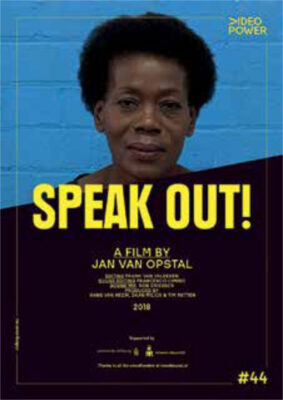Main content
I became infected with the HIV virus in 1986. It was in the middle of the horrible panic period about this new gay-related disease – a period in which nobody really knew anything about its modes of transmission. People were afraid to hug me or shake my hand. Coughing in a room with other people felt like a murder attack to them.
Thirty-two years later, much has changed in terms of treatment and care, but many things have not changed. Ignorance and stigma still exist in many low- and middle-income countries, as well as here in the North. This motivated me to make a film about the stigma surrounding HIV and AIDS. In this film, Speak Out, members of a support group courageously tell their story. Terribly sad stories, in particular those of the more vulnerable persons like single mothers, young gays and orphan teens. Their testimonies, unfortunately, illustrate how little progress we have made in this regard. Group members would not talk about their situation to their family members, afraid of consequences such as having to leave their homes or in some cases even worse. I kept asking myself why. We have the evidence, the options of treatment, and means to prevent mother to child transmission. And we educate people. So what did we miss?

Visiting South Africa and meeting members of this support group made me feel ashamed about my privileged situation – white, male, and rich – and I was shocked by the impact of the stigma. Thirty years ago, people’s fear was based on lack of knowledge. Apparently things haven’t changed that much. After showing the film at a theatre school in the Netherlands, some of the students asked me how the virus is transmitted. The ignorance on both sides of the equator is alarming. For us, getting infected may not be a big deal anymore, as the infection is treatable. But this lack of focus is cynical and selfish, and it contrasts sharply with the reality in many countries, where the disease is difficult to control and even on the rise due to a persistent lack of education and moral judgment regarding those living with HIV.
I became a so-called ‘long-term survivor’. In the beginning, I didn’t speak out because of the stigma. Only after people knew more about the disease, did I feel comfortable enough to disclose my situation. But I also wanted to live a normal life. In the end, I was more than just my disease. So I often chose not to speak out. But now I feel the need to raise my voice on behalf of those who are afraid to speak, or even risk their lives when doing so. I continue the fight against ignorance and discrimination, now even more so in a world with rising conservatism. Because of Trump’s enactment of the Mexico City Policy, sexual education programmes are being curtailed or banned, as was recently the case in South Africa. Since the disease is no longer life-threatening here in the West, I fear that we are also losing our sense of solidarity. This calls for action!
I admire the courage of people like Lizzy, a member of the support group – a 52 year old Zambian woman who works in Johannesburg to support her family in Lusaka. She looks into the camera and is not afraid to say: ‘I am HIV positive and I am fine! The medication is taking care of me, and I am taking care of myself and my family. A couch is a couch, and I’m not transmitting the disease. I am fine!’
| Speak out! 2018 | English | 38 mins | Digital Video | Color | Stereo | 25fps In 1986, at the peak of the panic about a new ‘gay-disease’, director Jan van Opstal heard that he was HIV-positive. Years of stigma followed, but the panic waned and life continued. During a holiday in South Africa, Jan was introduced to the Sister Mura Foundation, a support group for people with HIV. Many of the group members where shunned from their home countries, sometimes by their family fearing infection. The taboos surrounding HIV and AIDS echoed Jan’s own experience, but the contrast to his own situation struck him. He started following the members of the support group and sharing experiences together. The result is a touching documentary that calls for solidarity and discusses the importance of speaking out. The film is available for educational purposes. Contact: janvanopstal@hotmail.com |

















































